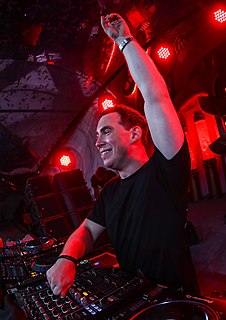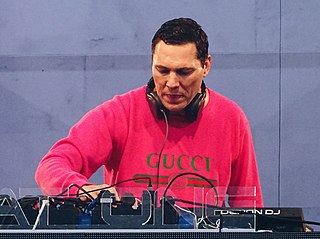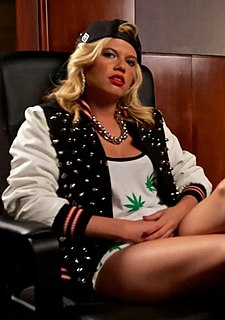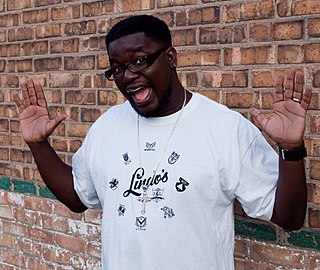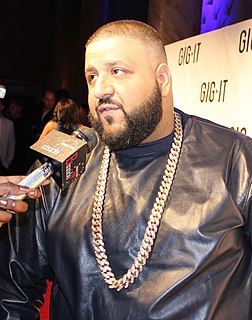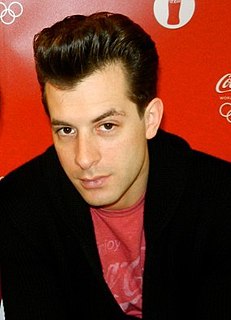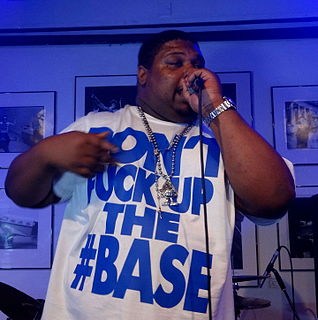A Quote by Hardwell
A lot of people always see the EDM DJs as button pushers, especially when deadmau5 came up with that term. Well actually I started out as a hip-hop DJ and I won several awards in Holland for my skills.
Related Quotes
I've been a DJ since I was about 13, and I started out as a hip-hop DJ. So I was always playing records that would just get people going. I was just doing parties and high school dances and whatever, and then, progressively, I started making my own music, writing little songs here and there, but it was never anything crazy.
I started DJing soundclashes. I used to go to Jamaica a lot. I was like a hip-hop sound boy, where I took the dancehall culture and mixed it up with the hip-hop as well. I kept going, going, and I got real hot in the streets of Miami - you know, doing pirate radio - then ended up doing 99 Jamz, the big station out there.
There needs to be structures in place to do something about misrepresentation about hip hop. When awards are given out and the media talk about hip hop, they're confused because they haven't done their homework on it so you have a case where there's an award for the most pop song in the world and it's called 'hip hop'.
